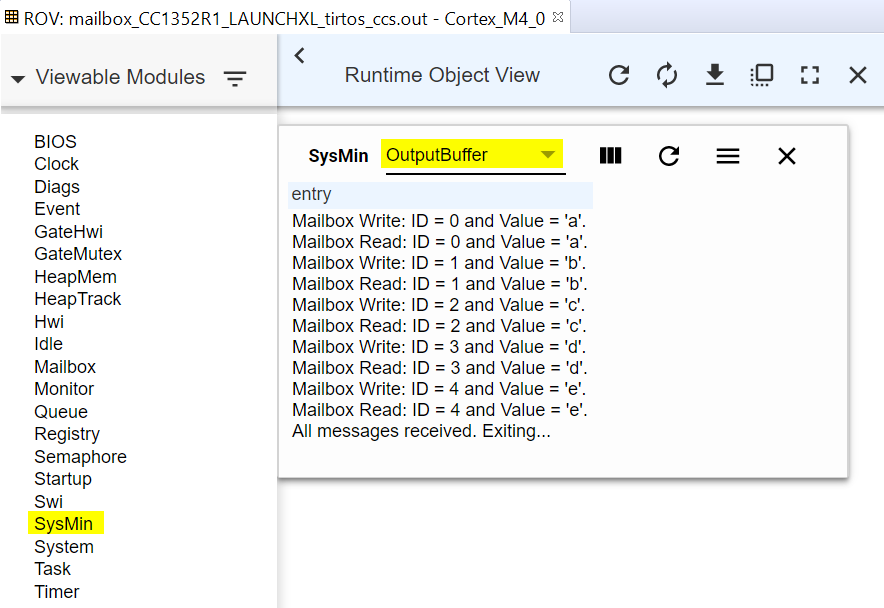I'm using SYS/BIOS (the TI-RTOS kernel) in an application. I call System_printf, but I'm not sure where the output is going to. It is not being shown in the console. Help!
-
Ask a related question
What is a related question?A related question is a question created from another question. When the related question is created, it will be automatically linked to the original question.


